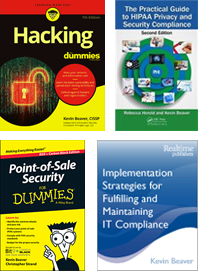-

What you (really) need to know about esophageal manometry
29 May 2015Aside from my typical computer security-related blog posts I thought I’d branch out and share something completely unrelated in hopes it can benefit others.
Recently, I had the opportunity to endure the most difficult thing I’ve ever experienced as a forty-something male: esophageal manometry. It’s performed on patients suffering from gastroesophageal reflux disease (GERD). In short, the medical professional sticks one of these ~1/2″ thick torture tubes up one of your nostrils and all the way down to the entry point of your stomach…a medical procedure undoubtedly similar to pre-1800’s era surgeries: awful, seemingly inhumane, and without anesthesia.
This is my story – details I feel that others who are about to experience an esophageal manometry may want to know…
Had I known that:
• The procedure costs over $10,000, I would’ve prepared myself mentally for the 30+ percent co-pay I was going to have to put on my credit card not 15 minutes before getting started. Perhaps this threw off my state of mind a bit…
• Breathing techniques (à la Lamaze during child birth) are so important, I would’ve practiced them a lot more.
• I wasn’t going to get the nose/throat numbing gel like I read about on various websites and saw on YouTube during my initial research, I would’ve prepared myself better (mentally) and not asked about it before we began. I think this tripped me up mentally as well.
• It was going to be such an intense mind-over-matter situation, I would’ve have had more of my favorite music (that serves as a great distraction/motivator) queued up on my phone rather than have to look it up and play it as the procedure was starting.
• My sinus issues (brought on, in large part, by GERD) were going to make me want to clear my throat during the procedure, I would’ve practiced not clearing my throat. Ditto for swallowing. Every time I swallowed when I wasn’t supposed to (outside of the procedure’s 20 measured liquid/gel swallows), it negated the previous swallow. It took me 20+ minutes of failed attempts before I realized the importance of a strong start makes for quicker finish with this procedure.
• The procedure is performed not only to determine motility when swallowing (how your esophagus works food/liquid downwards toward your stomach) but also to provide information on how tight/loose a surgeon needs to make things in any follow-up fundoplication surgery, I likely would’ve used that as motivation to tough things out a bit more.
• Just how trying it was going to be, I would’ve brought my wife along with me to be by my side. Luckily there were two nurses performing my procedure – one was in training and the other was there to guide the trainee and, just as importantly, hold my hand and assure me that everything was going to be okay.
• My gastroenterologist was going to later admit that it’s common practice to not tell patients how challenging the procedure is, I would’ve given it a second thought.I’m not the toughest of guys when it comes to pain, medical procedures, and related human experiences. Overall, I’m glad I did it. If anything, my esophageal manometry made me a stronger and more resilient person who better realizes just how fragile and vulnerable we are as human beings.
Everyone’s mileage will no doubt vary with esophageal manometry. Still, as was my experience, information such as this is hard to come by. I’m all for having my expectations properly set…they certainly weren’t for this procedure.
I hope this helps someone out there somewhere. You can do it. Knowing what I now know, and especially what I learned, I could do it again as well if I had to.



